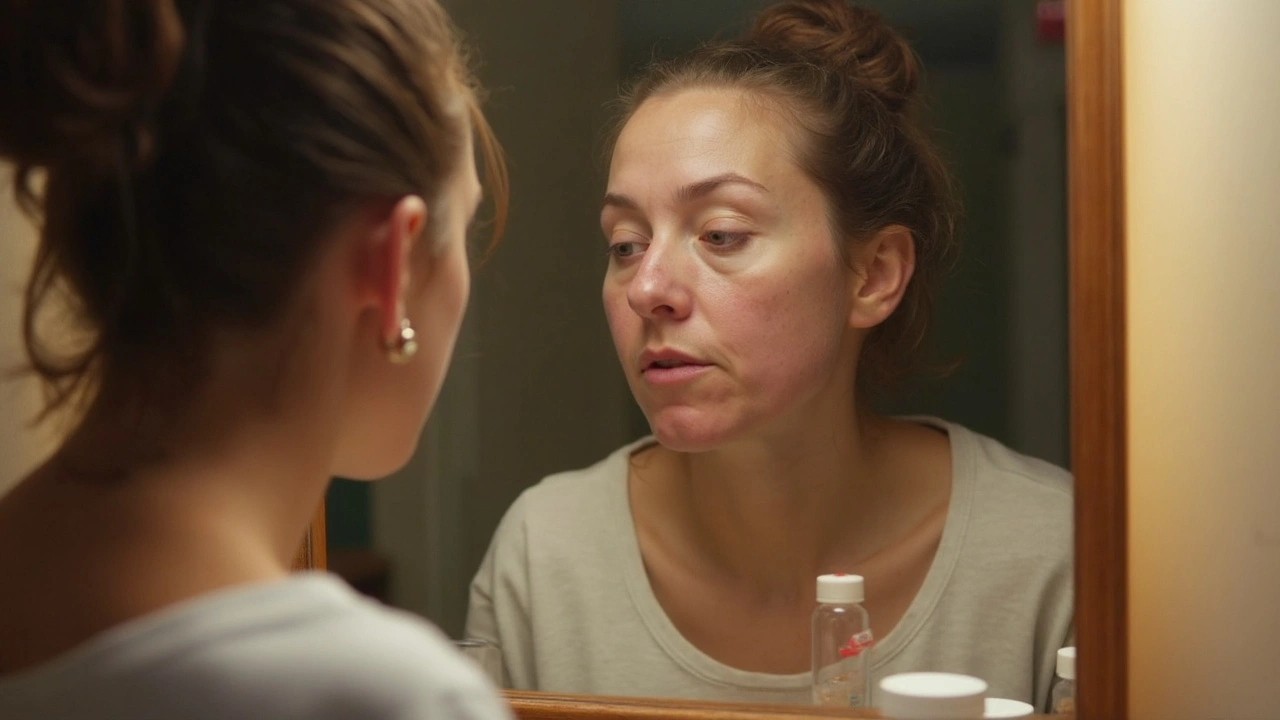Accutane (Isotretinoin) – What It Is and Who Should Use It
Accutane, whose generic name is isotretinoin, is a pill doctors prescribe for stubborn acne that won’t clear with creams or antibiotics. It’s usually reserved for people with nodular or cystic acne that leaves scars. If you’ve tried everything else and still have painful breakouts, your dermatologist may suggest a short 4‑6 month course of Accutane.
How Accutane Works and Typical Dosage
Accutane belongs to a class called retinoids. It reduces the amount of oil your skin makes, unclogs pores and slows down the growth of acne‑causing bacteria. The usual dose is 0.5‑1 mg per kilogram of body weight per day, split into two doses. Doctors start low and may increase the dose if you tolerate it well. Blood tests are done before you start and every month to check liver enzymes and cholesterol.
Common Side Effects and How to Manage Them
Dry skin, lips, and eyes are the most frequent complaints – think chapped lips that never heal. Use a thick lip balm and gentle moisturizers, and stay hydrated. Some people feel joint or muscle aches, especially after workouts; light stretching and over‑the‑counter pain relievers can help. Rarely, you might notice mood changes or headaches – if they get bad, call your doctor right away.
One big rule: Accutane is teratogenic. That means it can cause serious birth defects if a woman gets pregnant while on the drug or for a month after stopping. Women of child‑bearing age must use two forms of birth control and take monthly pregnancy tests. Your clinic will likely enroll you in a strict monitoring program.
Sun sensitivity goes up, too. Even on cloudy days, wear sunscreen with at least SPF 30 and a hat. If you notice any unusual skin rashes or severe redness, stop the medication and get medical advice.
While on Accutane, avoid vitamin A supplements – the drug already acts like vitamin A and too much can strain your liver. Also, limit alcohol and stick to a balanced diet to keep cholesterol levels in check.
Most patients see a dramatic drop in acne after the first two months, but the full effect can take up to six months. After you finish the course, many stay clear for years, but a small number need a second round.
If you’re considering Accutane, talk to your dermatologist about your medical history, any current meds, and whether you’re comfortable with the monitoring requirements. Knowing what to expect makes the process smoother and reduces surprises.
Bottom line: Accutane can be a game‑changer for severe acne, but it demands careful follow‑up, strict birth‑control rules, and attention to side effects. With the right precautions, most people finish the treatment with clearer skin and fewer scars.

Accutane Guide: Isotretinoin Treatment, Side Effects, and Real Stories
Accutane (isotretinoin) is a powerful medication used for severe acne. Discover how it works, what to expect during treatment, how to deal with side effects, and get practical tips from first-hand experiences. Learn facts that dermatologists want you to know, see real-life stories, and explore the science behind this acne solution.
